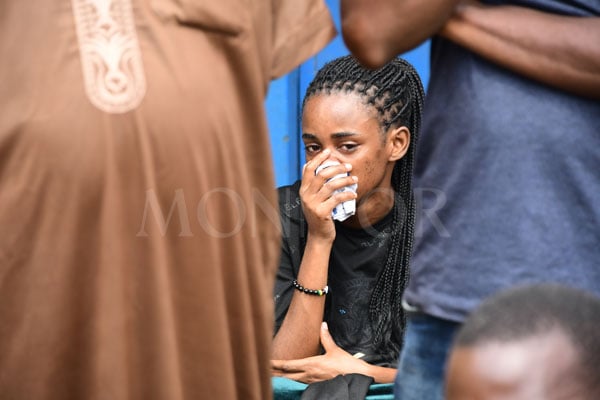Kakwenza asks EU to act on torture

Critical writer Kakwenza Rukirabashaija. PHOTO/FILE
What you need to know:
The exiled writer asks the EU to impose visa bans on those responsible for torture, corruption and fanning homophobia in the country.
Exiled critical writer Kakwenza Rukirabashaija has asked the European Union (EU) delegation to Uganda to crack the whip on public officials responsible for human rights violations.
Mr Kakwenza fled from repeated torture at the hands of security operatives last year. He was also facing prosecution for his derisive mockery of the political class.
The writer specifically asks the EU to impose visa bans on those responsible for torture, corruption and fanning homophobia in the country.
“The European Union bears a moral obligation to uphold and defend the rights of the oppressed, especially when such rights are brutally violated by a government it supports,” Mr Kakwenza says.
In the undated petition, which was received by the EU last Thursday, Mr Kakwenza names the Speaker of Parliament, Ms Anita Among, her deputy Thomas Tayebwa and several others who openly “spewed homophobic comments in the media and aggressively or undemocratically championed the passage of the Anti-Homosexuality Act, 2023”.
In May, President Museveni signed into law the anti-gay law that is widely supported by citizens and condemned by the West and rights activists.
Mr Museveni, however, clarified in his State of the Nation Address in June that the legislation does not criminalise those who identify as LGBTQ+, but still prescribes the death penalty for “aggravated homosexuality”.
“The law now says that a homosexual will not be criminalised for merely being so, if he/she keeps the being to oneself,” he said.
“What, then, does the law fight? It fights this homosexual when he/she goes from merely being and starts recruiting other people by misinforming or bribing etc. There, he becomes a criminal and, if convicted, goes to prison for a period not exceeding 20 years.
A person who rapes another commits a capital offence and he faces a maximum sentence of death.
But Mr Kakwenza says he is deeply concerned about the failure by the 27 member states of the EU to effectively enforce the Union’s policy on human rights and corruption in Uganda.
Last year, the writer had Munich mayor Dieter Reiter halt a National Resistance Movement (NRM) Diaspora convention in Germany.
Mr Kakwenza counted it as a big score in his hybrid war on bad governance, corruption and human rights violations in Uganda. He now seeks to have more.
“Several high-ranking officials, who bear direct responsibility for the violation of the principles the European Union stands for, continue to traverse the land of freedom - Europe - without any impediment,” he says.
“They exploit diplomatic tours or engagements to do so, which is regrettable. Security officers who directly and indirectly torture Ugandans, and the magistrates and judges who fail to use their offices to protect victims of human rights abuses in accordance with the domestic and universal law, are not forgotten in this concern.”
Iron sheets corruption
Another concern Mr Kakwenza said merits immediate attention is the “pervasive corruption that plagues Uganda”, citing the Karamoja iron sheets pilferage case.
In March, the country was left aghast when it emerged that up to 14,500 of some 100,000 iron sheets procured for vulnerable households in Karamoja Sub-region had ended up in the hands of unintended parties after a minister responsible for the sub-region, Dr Mary Goretti Kitutu, irregularly shared them out with colleagues and relatives.
Including Vice President Jessica Alupo, Prime Minister Robinah Nabbanja, and Parliament Speaker, up to 22 ministers were implicated in the shameless act.
“I firmly believe that those who engage in such heinous acts should not be granted the liberties and freedoms that Europe offers. Why are individuals involved in corruption and human rights abuses allowed to enjoy the privileges of Europe while denying such freedoms to the people of Uganda?” Mr Kakwenza said.
Govt, EU react
Government spokesperson Ofwono Opondo said Mr Kakwenza can “go ahead” with his petition. Pressed on the wider implication given the recent threats of sanctions from the US government and the West over the anti-gay law, Mr Opondo asked: “So what are you saying? Should we prevent him from petitioning?”
Mr Emmanuel Gyezaho, the country press and information officer at the EU, said the delegation would respond to the petition.
“Generally speaking, we take petitions into account to the debates taking place between the EU, our member states and institutions, in our headquarters in Brussels and locally,” he told Daily Monitor.
“It is these debates that inform and are part of the internal debates and discussions.”





